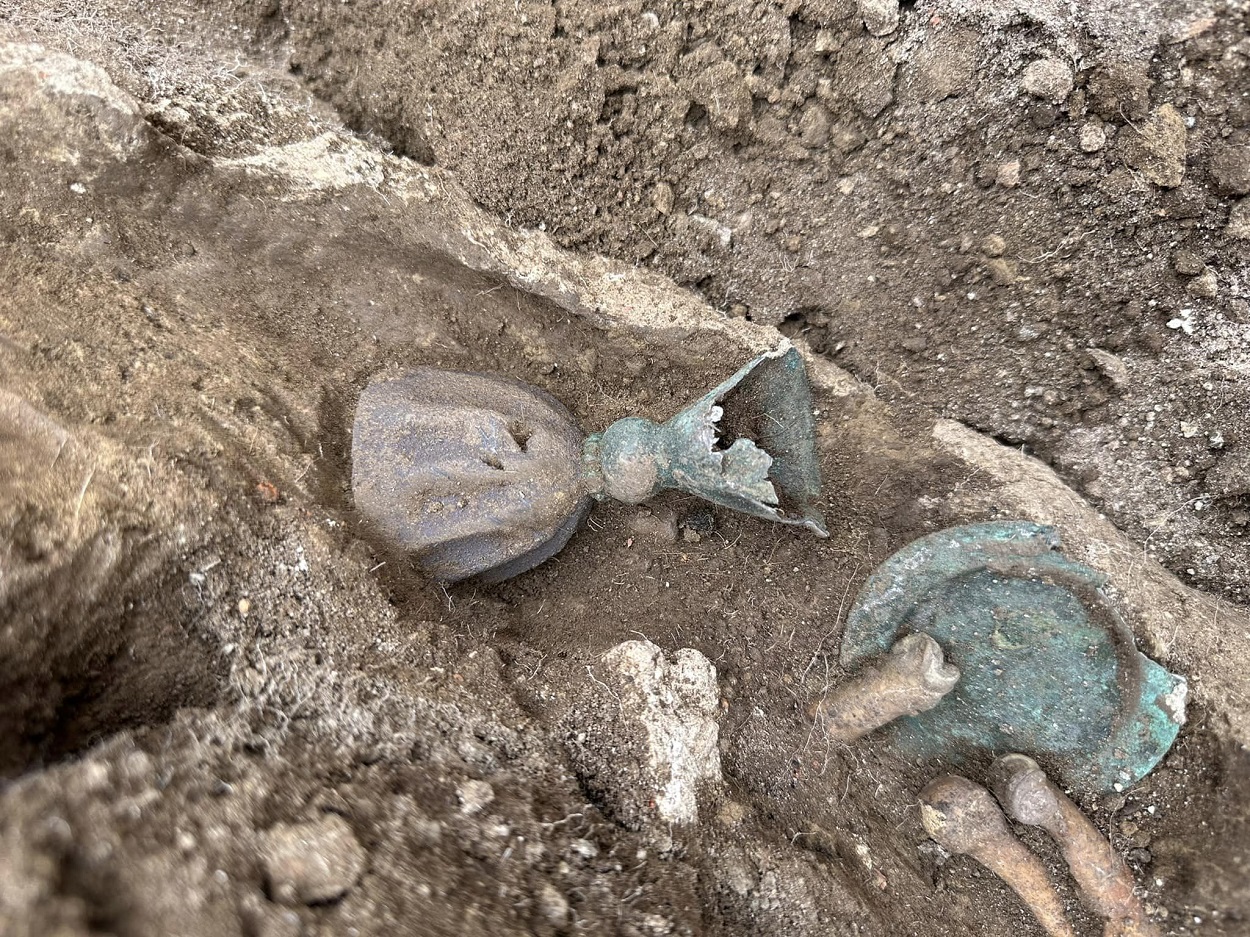Archaeologists from the National Archaeological Institute have uncovered a rare silver Eucharist set alongside a treasure hoard of silver coins.
A press statement released on social media announced that the hoard was discovered during excavations of a Benedictine abbey near Lake Tisza, an artificial lake in Heves County, Hungary. The abbey was first discovered in 2023 in the village of Tomajmonostora.
Gábor Virágos, an archaeologists from the Hungarian National Museum and president of the National Archaeological Institute, said: “In the previous year we identified the three-nave monastic basilica and an early round church. This has led to the discovery of both the medieval Benedictine abbey and the church of the preceding settlement.”
Among the finds is a rare silver Eucharist set consisting of a silver chalice and plate used in Christian services at which bread and wine are consecrated and shared. Christians believe that the rite was instituted by Jesus at the Last Supper, the night before his crucifixion, giving his disciples bread and wine.
Both finds date from sometime around the 13th to 14th century AD, which were placed in a funerary context alongside the skeletal remains of the deceased.
Part of the excavation project has also been to determine key sites from the Battle of Keresztes (also known as the Battle of Mezőkeresztes), fought between a combined Habsburg-Transylvanian force and the Ottoman Empire near the village of Mezőkeresztes in 1596.

This has led to the discovery of a treasure hoard containing 70 silver coins of the Viennese penny (denar) that date from the 13th to 14th century.
According to the press announcement: “The coins were issued by the princes of Austria, contrary to their common name, not only from the Viennese mints but also from the Enns and Bécsujhely mints.”
Header Image Credit : National Archaeological Institute
Sources : National Archaeological Institute





